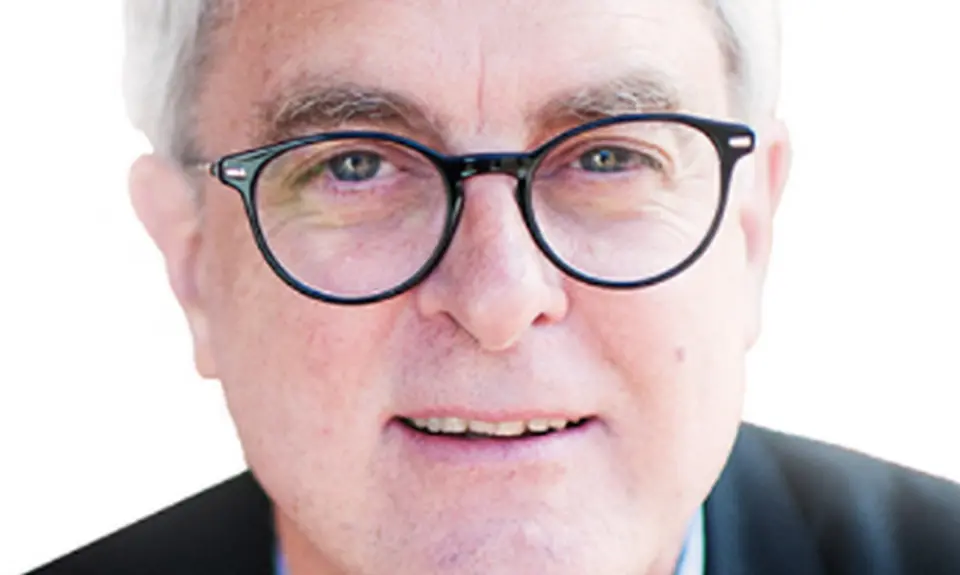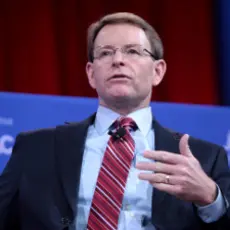The Family Research Council, a major religious-right political advocacy group with deep ties to Republican leaders and an aggressive culture-war agenda, announced Wednesday the launch of the Center for Biblical Worldview, a new “ministry” that it says will “train Bible-believing Christians to advance and defend the faith in the workplace, in the schools, in their communities, and in the public square.”
“We want to help you see the spiritual war behind the political war,” says a promotional video for the new project, which a narrator says is designed to help Christians “think biblically about everything.”
Two longtime religious-right activists were announced as the CBW’s first senior fellows: pollster George Barna and theologian Owen Strachan.
Barna specializes in studying what he calls SAGE Cons—Spiritually Active Governance Engaged Conservative Christians. At FRC’s 2017 Values Voter Summit, Barna told religious-right activists that 2016 was “a Christians vs. non-Christians election,” concluding, “God did a miracle for us.”
Strachan, now a seminary professor, is a former president of the Council on Biblical Manhood and Womanhood, a group that says it was “established primarily to help the church defend against the accommodation of secular feminism” and promotes traditional “gospel-driven gender roles.” Historian John Fea’s blog post on the FRC announcement linked to a recent Strachan tweet telling Christians to find a new church if their current one allows women to preach even occasionally, and another telling Christian women that God will reward them for doing laundry, changing diapers, and supporting their husband.
FRC’s new project may have been foreshadowed last fall when Perkins and Barna discussed conservative evangelicals’ influence on national politics on Perkins’ “Washington Watch” radio show, and the two agreed that developing a “biblical worldview” was the answer to the “spiritual deficiency” they saw as leading to “the collapse of American society.”
FRC’s press release announcing the CBW promoted Strachan’s upcoming book, “Christianity and Wokeness,” and said that Strachan “will help CBW expose the woke secular ideologies that have increasingly infiltrated Christian universities, denominations, and other institutions and help provide resources for pastors, churches, and Christian families.” This seemingly puts FRC—like the Liberty University project formerly known as the Falkirk Center—squarely on the side of right-wing evangelicals opposed to efforts by other evangelicals to have churches address structural racism and other social justice issues.
It is worth noting how narrowly Barna and the Family Research Council define what they consider a genuinely biblical worldview. FRC’s Tony Perkins said a person only has a biblical worldview when they believe “that the Bible is true, authoritative, and then taught how it is applicable to every area of life, which enables them to live out those beliefs.” Barna has long complained that even self-identified conservative Christians do not meet his standard. In FRC’s press release, CBW Director David Closson claimed that just 6 percent of the U.S. population actually has a biblical worldview. Closson said that means “most of our friends and neighbors, including those who attend church, do not think about the day’s moral and cultural issues through the lens of scripture.” In other words, only a minority of church-going conservative-voting evangelicals meet the FRC “biblical worldview” standard.
FRC and its new center are out to change that by getting fellow Christians on board with their approach to four major issues: political engagement, human sexuality, “pro-life engagement,” and “religious liberty.” The Center is promoting resource materials in English and Spanish that were written by Closson in each of those areas, offering a full report, an abbreviated version, and a related prayer.
“Debates over sexuality, gender, and marriage are really disagreements about whether the rules are made by us or for us,” declares the center’s promotional video, adding, “What we think of as political debates are often much more than that—they’re disagreements about the purpose of our lives and the source of truth.”







